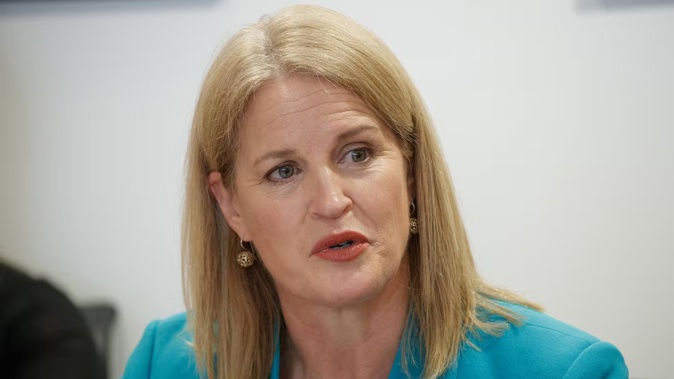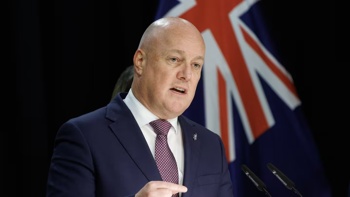
Ministry of Social Development officials warned their Minister using Payment Cards as a sanction for beneficiaries can be stigmatising and open to exploitation.
The MSD report also cites evidence money management can lead to welfare dependency, and negatively impact child wellbeing.
Labour said the Payment Cards are a "punitive approach" that doesn't trust adults with their own money.
But Minister Louise Upston says Money Management will be designed in a way that works for New Zealand - describing it as an innovative and temporary measure that motivates Jobseekers to find work.
This is despite officials citing studies showing negative mental health impacts, and noting payment cards are “one of the most easily circumvented aspects of money management."
Upston said MPs will be looking into all possible issues.
"We're drafting the legislation, and it'll be open to a Select Committee process so we can iron out any wrinkles," she said.
From next year, Money Management sanctions will be introduced as an option for some beneficiaries who have failed to meet obligations to seek work - with legislation set to be passed before the end of the year.
Under this sanction, half a person's benefit goes onto an electronic payment card that can only be used at approved stores.
It functions in a similar way to a debit card or other existing MSD payment cards (such as for unexpected, or one-off costs), and can be used at approved suppliers to buy essential items.
According to data released last week 98% of people on the benefit are meeting obligations associated with that benefit -- and thus wouldn’t be subject to sanctions such as Payment Cards.
Ministry of Social Development officials provided Minister Louise Upston with a report about implementing the Traffic Light System, the Government's welfare reset, in June.
The document, released to Newstalk ZB under the Official Information Act, details evidence showing money management can have risks for clients if not implemented carefully.
It proposed using redirections to cover regular expenses such as rent, arguing payment cards can be "stigmatising, open to exploitation, and create logistical difficulties."
"The lack of redirections in the Australian model has caused instances of people being unable to pay for rent in situations where a large portion of their payment is placed on their payment card,” it stated.
Officials later said "payment cards can cause a feeling of being stigmatised and can cause users to develop negative mental health impacts as a result."
It also noted "Payment Cards are also one of the most easily circumvented aspects of money management, as people can sell them for cash or simply buy goods which they then sell for cash."
Upston said New Zealand's system will work differently from Australian examples, and the Select Committee process will deal with potential issues.
She said personalised PIN numbers and signatures are already used by MSD to deal with misuse of payment cards.
Upston decided against redirections because Money Management will be temporary - in place for a maximum of 12 weeks - and setting up redirections for a short period "would not be worth the administrative time and cost."
Officials also cited evidence "use of money management can hinder a person's financial capability and lead them to becoming dependent on the welfare system."
Links to negative impacts on child wellbeing were also raised - officials saying money management in Australia has been correlated to lower average birth weights for newborns, or lower school attendance rates.
"They have also suggested that the imposition of money management may result in increased levels of household stress and family discord, which can in turn have negative consequences on child wellbeing," it said.
Upston says logistical issues would be mitigated by only 50 percent of a person's benefit being put on a payment card, increasing the contact a jobseekers have with MSD, and only using Money Management in cases where it makes sense not to reduce someone's benefit - for example, if they have dependent children.
She's also not concerned about benefit dependency due to the temporary nature of the sanction.
But Labour's Social Development spokeswoman Carmel Sepuloni said the Minister is ignoring her officials’ advice.
"The officials made really clear the issues with the upped or increased usage of a Payment Card... but it seems the Government is just persevering despite the evidence in front of them."
"We're seeing job losses en masse, and then people are relying on the welfare system during these difficult times -- it doesn't seem fair that on top of that they're getting these punitive measures and this stigmatisation put on them."
Sepuloni said these sorts of policies also undermine Upston's role as Child Poverty Reduction Minster.
"When the Minister for Child Poverty, even when it's with her MSD hat on, is given advice that ... this is not going to be good for child wellbeing in general, and she choose to ignore it -- I just think that's an indictment on her."
Take your Radio, Podcasts and Music with you









